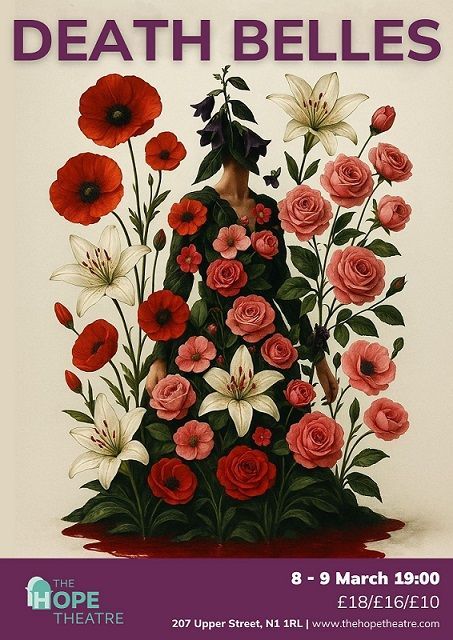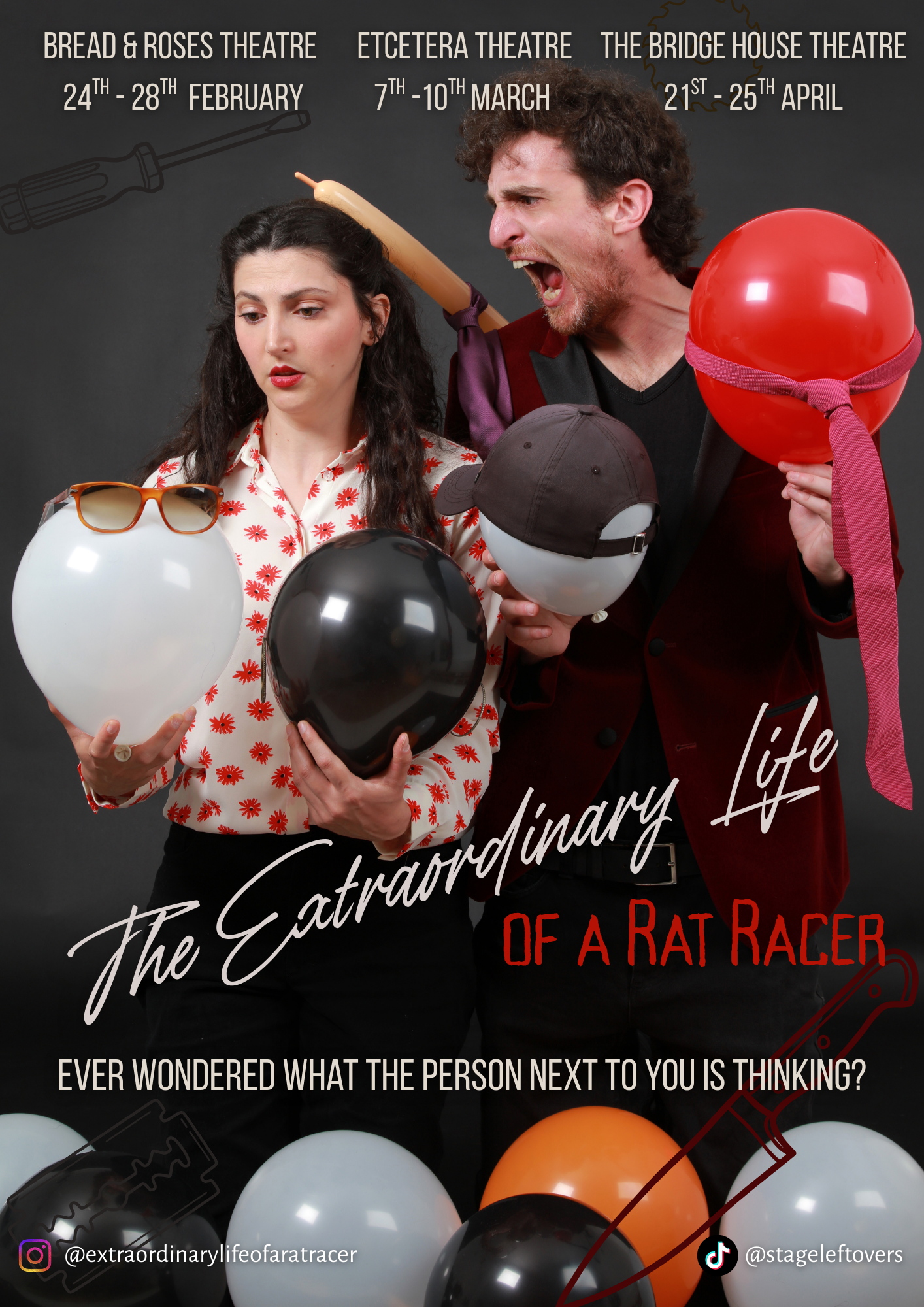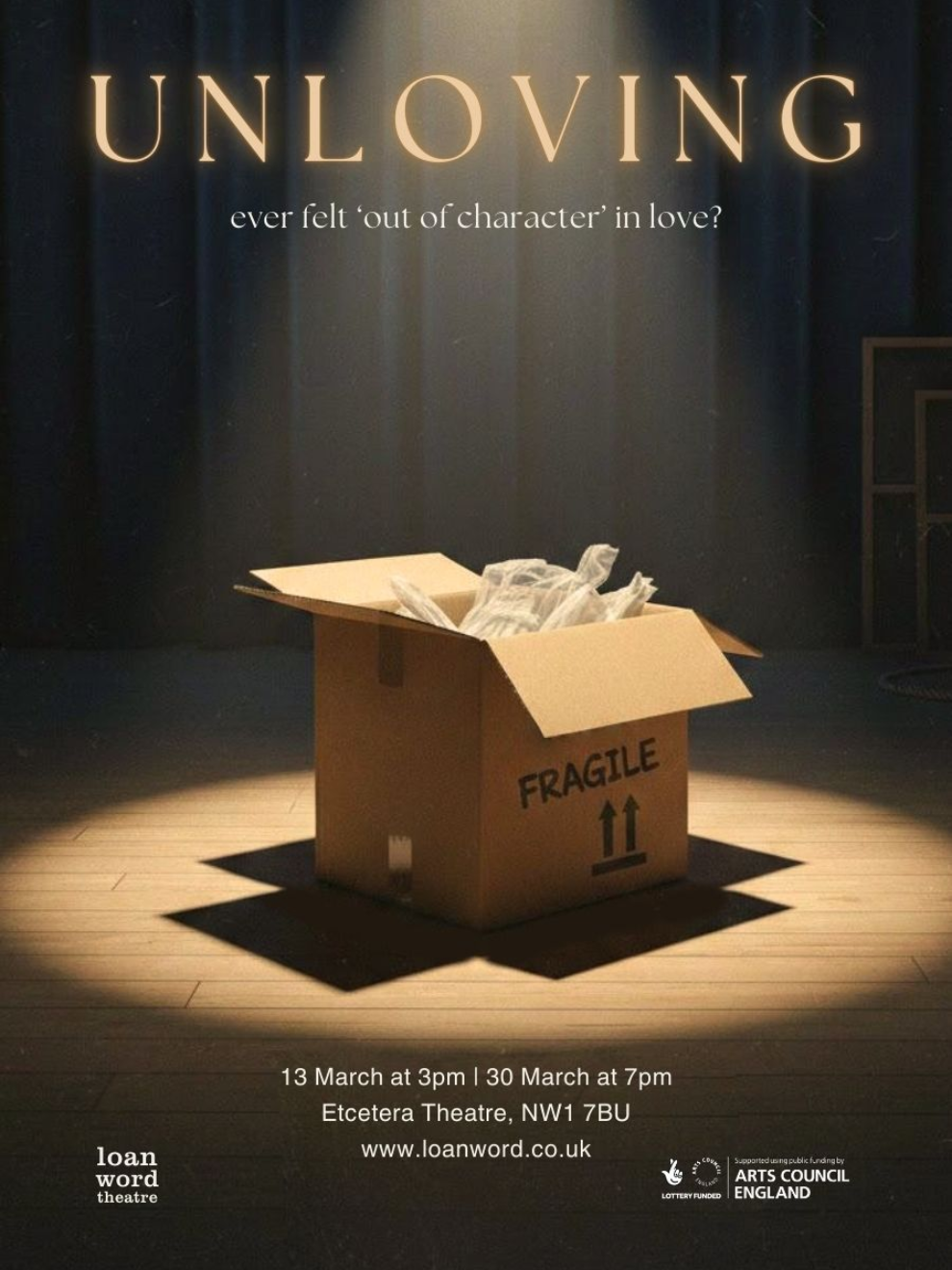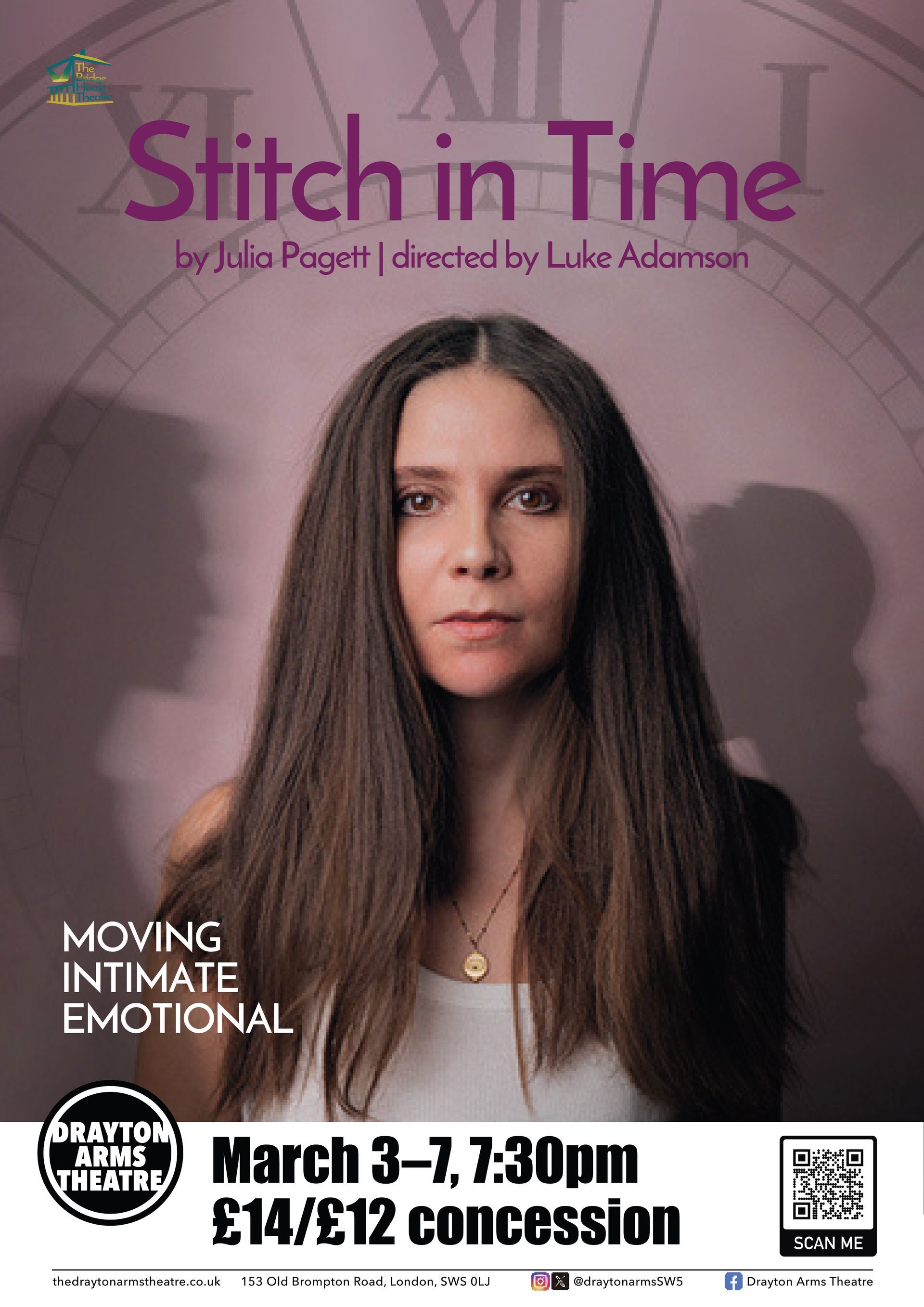REVIEW: The White Chip by Sean Daniels at Southwark Playhouse 9 July - 16 August 2025

'a wrenching story of alcohol addiction' ★★★★ ½
‘Truth is stranger than fiction’ is a commonly bandied adage. In “The White Chip”, you realize pretty quickly that this is someone’s personal story as the details are so specific, even ludicrous. It is a wrenching story of alcohol addiction shared dramatically and without holding back the dark and dirty, as the characters sometimes struggle with the concept of truth.
Steven (Ed Coleman) starts as a youth who has his first drink as a teenager and learns how to hide his love for drink (or so he thinks) over the years from family, friends, and lovers. Coleman speaks quickly and charms all members of the thrust stage as he takes us through a tour of his life and middle America to show how a Mormon boy ends up at the number one party school in the US (Florida State, if you must know) and finally on his knees.
The two other actors (Mara Allen, Ashlee Irish) are a swirl of action: quickly shifting set pieces, beautifully multi-roling, and providing the banter Coleman needs to pull off what would otherwise be a very long monologue. They come to represent the many people who come into and out of his life because though Steven is the teller of the tale, there is a swarm of people both impacted by and influencing his story. Allen’s turn as his mother is particularly poignant in her own shift from the careless mother to the co-recovering alcoholic.
What is interesting in this whirlwind of a story of addiction is Steven’s awe for the American playwrights who juggled alcoholism with writing some of the most lauded plays in the canon, such as Edward Albee, Eugene O’Neill, Tennessee Williams. A successful dramatist in the US, finding professional success, he is constantly pulled away by his greater love for drink. As the story returns to the concept of ‘the white chip’, representing a chance to start afresh, Steven has to confront the strength of his own desire to truly become sober and overcome himself.
At times, the play reminded me of a country music song: parents hate him, wife leaves him, dog dies. He is living out Groundhog Day (the film gets a mention). Similarities exist to Duncan McMillan’s People, Places, and Things (recently reprised by Denise Gough from a decade ago) playing a main character caught in a cycle of addiction and the ending of The White Chip has a moment of intersection with this play’s fervency. I also recalled Blackout Songs by Joe White about a codependent couple who fall in love after an AA meeting. They “oscillate at a higher frequency” (direction notes) without ever ‘playing drunk’. Coleman operates at a similar frequency very effectively in his take on Steven.
The set is simple, easily changeable, at times perplexing. Huge columns of chairs in the back (perhaps symbolic?) behind the sound person’s table loom and are at times pulled out. Most notable is the use of coloured lighting with the sound of a heartbeat effectively brings us back to the singularity of Steven’s choices and consequences. The blackness of the stage and the props correspond well with the darkness of Steven’s experience.
Throughout this take on the orthodoxy of addiction, from the initial Mormon summer camp reboot to AA Meetings to the Jewish pair (Lenny and Stuart) who ultimately help Steven find the higher power he could trust (science), something beyond himself that could pull him out of that constant internal struggle. Once he sees that truth for himself, Steven can also remember what it is to be human, and what a beautiful thing that is.
Photography: Danny Kaan
Written by Sean Daniels
Performed by Ed Coleman, Mara Allen, Ashlee Irish
Directed by Matt Ryan
Set & Costume Designer: Lee Newby
Lighting Designer: Jamie Platt
Sound Designer: Max Pappenheim
Reviewed by Mariam Mathew













